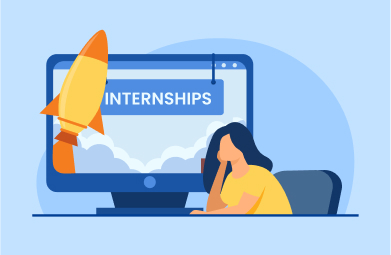Higher studies and academic research as a career option – what you should know?
 Many undergraduate students face the dilemma of whether to go for higher studies (Masters, Ph.D) post completion of UG studies or take up the lucrative job that is available through campus placements. Also there is a feeling that perhaps higher studies and scientific research are not as glamorous career options as a corporate job but the earlier do seem to offer greater autonomy and more intellectual simulation. Faced with such questions, what should a student do?
Many undergraduate students face the dilemma of whether to go for higher studies (Masters, Ph.D) post completion of UG studies or take up the lucrative job that is available through campus placements. Also there is a feeling that perhaps higher studies and scientific research are not as glamorous career options as a corporate job but the earlier do seem to offer greater autonomy and more intellectual simulation. Faced with such questions, what should a student do?
We turned to Professor V. G. Idichandy from the Department of Ocean Engineering, IIT Madras, to get his thoughts on the subject. Professor Chandy, in his illustrious career as an academician and an administrator (in his last two roles he served as Deputy Director and Director (Officiating) of IIT Madras) has interacted with a large number of students, professors, government officials, and industry leaders and has insights to offer that all the readers of Internshala can benefit from. Read on…
Q1. With more and more high profile and well paid jobs coming up every other day in the market right after graduation, why do you think a student will/should pursue higher studies (say a Ph.D) and academic research as a career option?
This is a dilemma faced by many good students at the crossroads of an important phase in their life – to choose a well-paid job or higher studies. The temptation is high. Nevertheless, there are quite a few students even today deciding in favor of the latter. The real worry is that this number is dwindling year after year. When the country needs highly qualified Scientists and Engineers and Teachers in large number, it is a pity that for many students the immediate gain looks attractive and the long term growth prospects are bleak. One should weigh all the options before taking a decision. From various considerations, for many students, an immediate well-paid job is in their interest but there are a sizable number who may be better off with higher studies and later a career in academia or R&D.
Q2. Students are generally expected to carry out a SWOT Analysis/Self-Evaluation before plunging deep into academic research. What all points one should keep in mind before taking up Higher Studies and Academic Research as a career option subsequently?
Long term career growth, quality of life in the long run, prospects of contributing to the growth of knowledge and society at large, shaping bright young minds, independence, working in teams towards common high impact goals, professional satisfaction, etc. are some of the points I can think of immediately.
In my long career I have seen many young professionals who wanted to return to college for higher studies after having fully exhausted in two/three years by the high profile jobs they landed in and the corresponding demands in performance. Having stated that, I do not imply that a career in academics is without responsibilities; on the contrary it is self-imposed goals and discipline that drives one to perform well.
Q3. It’s often said that going for a PhD is like deciding on marriage, both require long term commitment and there should be a good understanding and compatibility between the student and the faculty advisor is of utmost importance. Your thoughts?
The two relationships cannot be compared; one is life-long commitment, the other for a short finite period with a very specific goal. Failure can happen in both though successes outnumber. An advisor for doctoral or master’s degree must be selected with considerable thought and after serious discussions. Every Institution has exit routes for non-working relationship but their number is very few. A confident, self- respecting and hardworking scholar will earn the respect of the mentor and such a relationship founded on trust cannot fail.
Q4. For someone going for a Ph.D, what are the various career options available at the end of it? Is a career in Academia the only choice? Compared to the graduate/post-graduate job market, how easily accessible is a job for a researcher? Are they equally appreciated by the recruiters?
For a Ph. D, a career in academics is one of the major options even today. In a way it is good because of the shortage of good teachers. Please remember we have a serious shortage of good teachers. Bad and under-qualified teachers are a curse on the society as they play havoc churning out ill-prepared students.
However, of late, with the opening up of many R&D centres of MNCs there are other options open to Ph. Ds. The IT Services industries are opening up their R&D centres employing Ph. Ds. There are also openings for Ph. Ds in DRDO Labs, ISRO, Atomic Energy Establishments, CSIR labs and domain-specific research institutions all over the country.
Q5. While for students who pursue their MS/Ph.Ds from foreign universities, there could be better opportunities available because of the existing R&D Eco System in those countries; how are things closer home? What sort of opportunities are available for those who pursue MS/M.Tech/Ph.D in India (say from IITs, IISc etc.) and also for those who studied abroad and are now looking for suitable opportunities to return to India?
My response to the previous question answers this question. Remember that our industry is still young and the R&D budget is on the increase in many. A nation cannot survive long on imported technology and our private sector realized this already. While options in Industries will look up for Ph. Ds, there are options in our premier institutions. Hundreds of positions are vacant in our Institutions and those with an academia exposure it may be a preferred option.
Large scale recruitments of researchers are happening in many of our Institutions directly. In one of the schemes MHRD is offering Post-doctoral positions in reputed universities abroad for fresh Ph. Ds on condition that they will return and serve their host Institutions at the end of the fellowships.
In short, I am personally very optimistic about the job opportunities in India for Ph. Ds.
Q6. They say ‘lack of suitable environment and supports have always ruined India’s chances of coming out strong in the R&D world’. Being an insider, exactly what all falls under the category of ‘suitable environment and support’? Are there signs of things changing for better now? How are the Government granted projects and Research Fellowships helping in attracting bright students?
Our budget for Education and in particular for higher education has always been low because of large scale expenditure in other priority sectors. In spite of this, there were pockets of excellence in research. But things are changing for the better. As an IITian I can see the growth in budget and for the first time in the history of IITs, we feel that support from the Govt. for R&D is on the increase and as a result the research publication per faculty in IITs and IISc are comparable with those in some of the best institutions outside. While there is increase in budget by MHRD, funding agencies like DST, DBT, DIT, etc., have become very proactive in supporting research. Large budget projects are now within the reach of premier institutions with proven track record. This being a recent phenomenon, its impact will be seen in years to come.
All these growth require adequately qualified manpower and our thrust in wooing bright youngsters to take up research and also teaching as a career has to succeed. It is therefore but logical to think that a few more success stories of indigenous research and their impact worldwide will change the mind-set of our youngsters.
Q7. Researchers may often decide to call it quits and join the corporate bandwagon. How tough or easy the transition can be? What are the significant adjustments needed for this transition process?
Transition from academia to industry should happen more frequently in one’s career to orient the research with a practical orientation. (I am not ignoring the fact that basic and fundamental research should have its own space). It may be a sabbatical in the industry for an academic and vice versa.
Quitting the career in one to join the other should be a choice left to the individual. After all it is his/her decision and such decisions of far reaching consequences are taken after considerable thought. I do not find any reason why such transition should fail on the other hand it should enrich both the worlds for the better!



